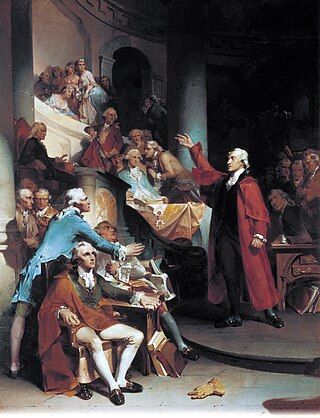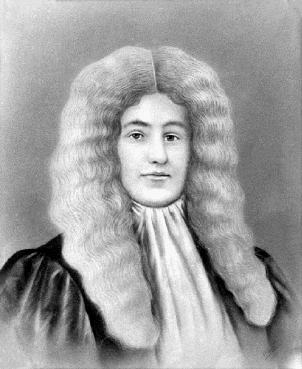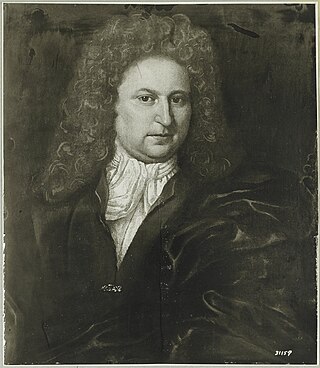Related Research Articles

Peyton Randolph was an American politician and planter who was a Founding Father of the United States. Born into Virginia's wealthiest and most powerful family, Randolph served as speaker of Virginia's House of Burgesses, president of the first two Virginia Conventions, and president of the First Continental Congress. He also served briefly as president of the Second Continental Congress.

Patrick Henry was an American politician, planter and orator who declared to the Second Virginia Convention (1775): "Give me liberty, or give me death!" A Founding Father, he served as the first and sixth post-colonial Governor of Virginia, from 1776 to 1779 and from 1784 to 1786.

The House of Burgesses was the lower house of the Virginia General Assembly from 1619 to 1776. It existed during the colonial history of the United States when Virginia was a British colony. From 1642 to 1776, the House of Burgesses was an important feature of Virginian politics, alongside the Crown-appointed colonial governor and the Virginia Governor's Council, the upper house of the General Assembly.

Richard Bland, sometimes referred to as Richard Bland II or Richard Bland of Jordan's Point, was an American Founding Father, planter, lawyer and politician from Virginia. A cousin and early mentor of Thomas Jefferson, Bland served 34 years in the Virginia General Assembly, and with John Robinson and this man's cousin Peyton Randolph as one of the most influential and productive burgesses during the last quarter century of the colonial period.

The Virginia Conventions were assemblies of delegates elected for the purpose of establishing constitutions of fundamental law for the Commonwealth of Virginia superior to General Assembly legislation. Their constitutions and subsequent amendments span four centuries across the territory of modern-day Virginia, West Virginia and Kentucky.

Robert Carter Nicholas was a Virginia lawyer, patriot, legislator and judge. He served in the Virginia House of Burgesses and its successor, the Virginia House of Delegates. He became the last treasurer of the Colony of Virginia, and sat on the first High Court of Chancery, one of the predecessors of the Supreme Court of Virginia.

John Robinson, Jr. was an American politician and landowner in the colony of Virginia. Robinson served as Speaker of the House of Burgesses from 1738 until his death, the longest tenure in the history of that office.
Thomas Stegg was a British merchant and politician in the Colony of Virginia. He served in both houses of the Virginia General Assembly, and became the first elected Speaker of the Virginia House of Burgesses during the 1643 session, when the Burgesses first met as a separate lower house.
Colonel Edward Hill was a Virginia planter, soldier and politician. In addition to representing Charles City County for many terms in the House of Burgesses, fellow members three times selected him as its Speaker, and he sat in the Virginia General Assembly's upper house, the Virginia Governor's Council in 1651 as well as from 1660 to 1663. Burgesses also sent Hill to Maryland to put down Richard Ingle's 1646 rebellion, and he acted as the colony's temporary governor before ceding to the proper governor, Leonard Calvert, but later contested nonpayment of monies promised to him and Virginia militia troops for that action. Col. Hill also led the Charles County and Henrico County militia and Pamunkey Native Americans against other tribes in Hanover County in 1656, with less success.
Ambrose Harmer was a Virginia landowner and politician. An opponent of Governor Sir John Harvey, he served on the Council 1639–41 under his successor, Sir Francis Wyatt. He served in the House of Burgesses 1645–46, and was Speaker in the 1646 session.
Thomas Dew was a Virginia landowner and politician representing Nansemond County.
Walter Chiles was a British merchant who emigrated to the Colony of Virginia where in addition to his business interests, he became a prominent planter, military officer and politician who at times represented Charles City County and James City County in the House of Burgesses, as well as briefly served on the Virginia Governor's Council and as Speaker of the House of Burgesses until removed by Governor WIlliam Berkeley because of a conflict of interest in ongoing litigation.
William Whitby emigrated from England to the Virginia colony where he became politician and major landowner. He represented Warwick County as a burgess several times, and became Speaker of the Virginia House of Burgesses in the 1653 session.

John Tyler Sr. was an American lawyer, planter, politician and judge who served in the Virginia House of Delegates and became 15th Governor of Virginia and later United States district judge of the United States District Court for the District of Virginia. He was the father of U.S. President John Tyler.
Francis Moryson was an English soldier who became a Virginia colonial official and agent. A Royalist in the English Civil War, he emigrated to the Virginia Colony, where he held several posts before returning to England and becoming the colony's agent, and finally briefly served on the commission investigating Bacon's Rebellion.
Robert Wynne (1622–1675) was a Virginia politician and landowner. He was one of the men representing Charles City County in the House of Burgesses from 1658 until 1675, and in 1658 and during the Colony's "Long Parliament" fellow burgesses selected him as their Speaker 1662–74. This was the second longest tenure of any Speaker.

Colonel Augustine Warner Jr. was an American planter, military officer and politician. He served in the House of Burgesses from 1666 to 1677 and was its Speaker in two separate sessions in 1676 and 1677, before and after Bacon's Rebellion. Warner then served on the Virginia Governor's Council from October 1677 until his death. Warner is the last common ancestor of George Washington and King Charles III.
Francis Dade, was a Virginia soldier, politician and landowner. An English Royalist who emigrated to Virginia some time after the death of Charles I. In Virginia he officially used the name "John Smith" when he served as one of the two delegates representing tiny Warwick County and as Speaker of the Virginia House of Burgesses in 1658. He died at sea in 1662 or 1663.

Peter Beverley was an English-born planter and lawyer who served as the 27th speaker of the House of Burgesses as well as treasurer of the Colony of Virginia (1710-1723). His father Robert Beverley had been the clerk of the House and a prominent member of the "Green Spring" faction in the decade after Bacon's Rebellion, and Peter Beverley also served as clerk before winning election as a Burgess and serving as speaker in four of the five assemblies at the beginning of the 18th century.
References
Kukla, Jon (1981). Speakers and Clerks of the Virginia House of Burgesses, 1643–1776 . Richmond, Virginia: Virginia State Library. ISBN 0-88490-075-4.